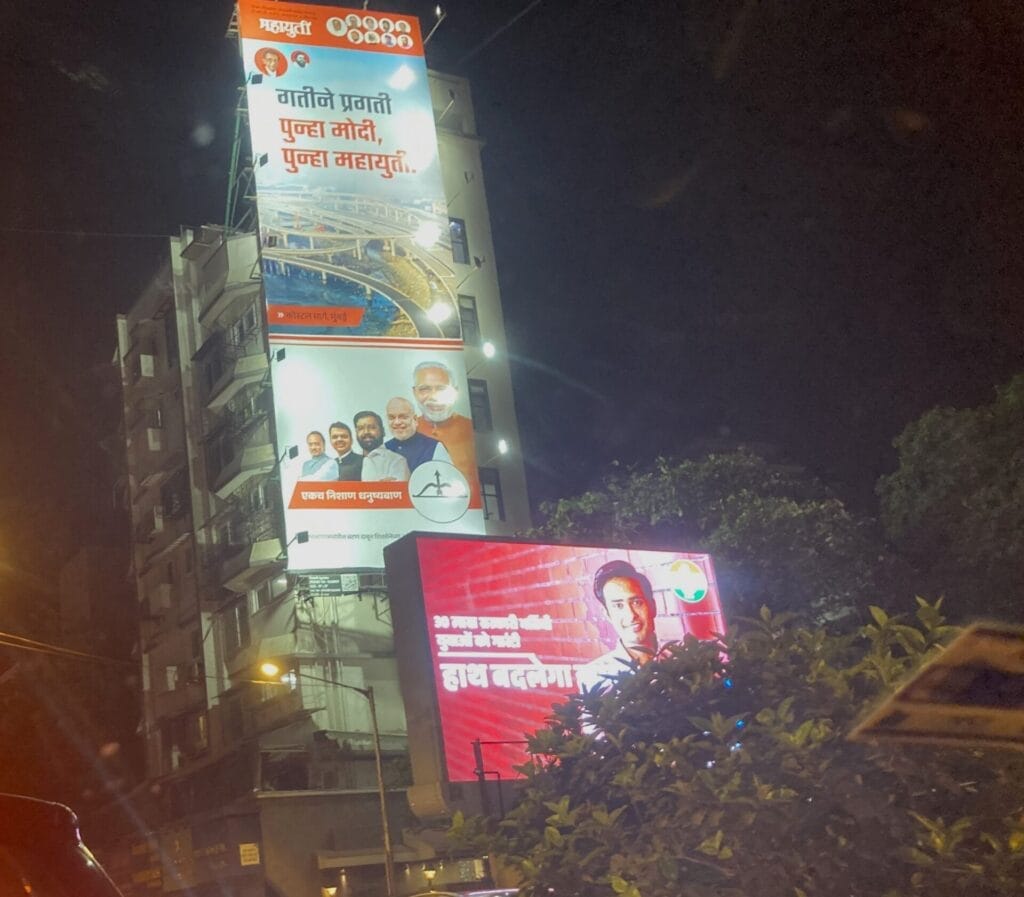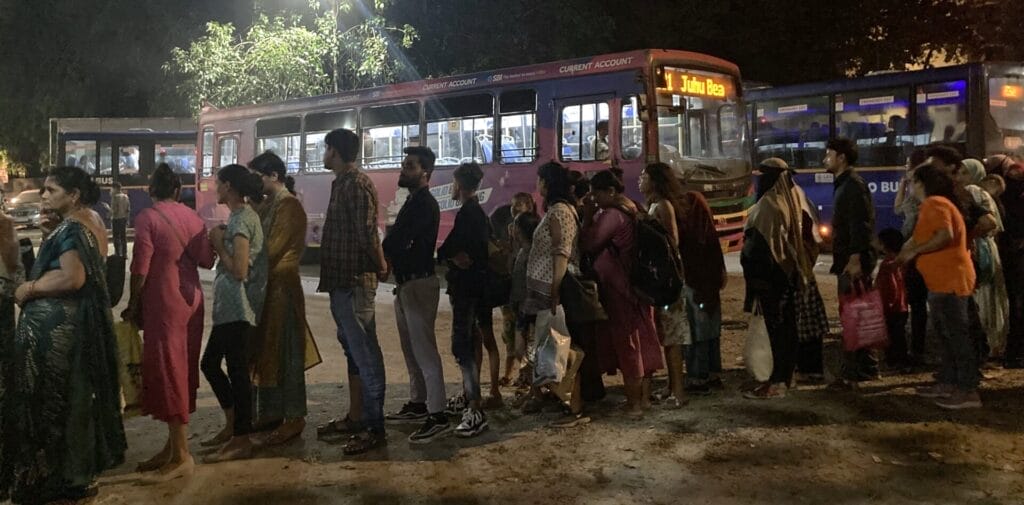Finally, it is that time again, after five years. Voting for the 18th Lok Sabha is on May 20th for Mumbai and people are watching the high-pitched campaigns by candidates. And many voters — young and old — are perplexed at political developments over the past few months and years.
It is hard to tell when it started, or that it was always there. At one time, defecting to another political party was looked down upon. Political leaders who party-hopped were quizzed by the media, questioned by the people at public meetings and had to work doubly hard to convince people of their actions.
A cursory look at Maharashtra politics, candidates in the state and Mumbai, and their election pitches, and one is at best confused, at worst disillusioned and angry.
Rebellions and ever-changing government
An unlikely alliance of Shiv Sena, Congress and the Nationalist Congress Party (NCP) came to power in 2019 in Maharashtra with Uddhav Thackeray as chief minister. This alliance, especially Chief Minister Uddhav Thackeray, led the handling of the pandemic and related crises. However, in 2022, a faction of Shiv Sena captained by Eknath Shinde rebelled and formed a government with support from the BJP. According to civic activists, retired officials and planners, this overnight upheaval has had a significant impact on the state and the city.
A year later, the Supreme Court observed that the floor test, before which Uddhav Thackeray resigned, would have been deemed illegal had he not done so. The Shinde-led government with former chief minister Devendra Fadnavis as his deputy, has been in power since then.

As if these developments were not disturbing enough from a larger point of view of democracy, Ajit Pawar, nephew of NCP chief Sharad Pawar, joined the Shinde government with 40 MLAs, breaking away from his uncle. He was made the deputy chief minister immediately.
Amidst all this, Raj Thackeray, cousin of Uddhav Thackeray, who founded Maharashtra Navnirman Sena, and was severely critical of the BJP in 2019 elections, has joined the BJP alliance.
At present Shiv Sena (UBT), Shiv Sena (Eknath Shinde), NCP (Ajit Pawar), NCP (Sharad Pawar), MNS and the Indian National Congress are all in the fray, campaigning for each other, with other alliance partners.
Delayed BMC elections amidst political turmoil
These political developments at the state level have also influenced the city. The elections for the Brihanmumbai Municipal Corporation (BMC), originally scheduled for the end of 2021, were postponed due to the pandemic. Although life has returned to its pre-pandemic state, the BMC elections have not yet taken place.
A state government appointed administrator is at the helm of BMC. Earlier, it was Iqbal Singh Chahal and now Bhushan Gagrani has been appointed as Commissioner after the Election Commission of India (ECI) ordered transfers of several senior officers.
Operating a civic body without elected representatives means there’s no genuine representation for citizens. Residents typically reach out to their local corporators with issues, who are then responsible for addressing, tracking and resolving them.
Former corporators from all the parties have been consistently flagging that they are unable to do justice to people, as their terms are over and they cannot raise concerns officially. However, BMC officials maintain that the city is functioning fine and they are able to manage.
This has been mentioned in manifestos of civic groups and discussed by concerned citizens, but it did not really become an election issue.
Read more: General Elections 2024: Voter awareness and accurate registration crucial
Mumbai needs attention
In recent years, Mumbai, already known for its congestion and crowding, has been dealt several blows. These include tree felling in Aarey Forest, escalating pollution, privatisation of public transportation like the BEST buses, and haphazard redevelopment due to inadequate planning.
Every year, hundreds of people die on railway tracks just while crossing the tracks or because of overcrowding.
The billboard mishap earlier this week, in which 16 people died, is an example of how human life is poorly regarded, in view of unplanned and thoughtless development.

Moreover, climate scientists warn that Mumbai, being a coastal city, will suffer an unimaginable impact of climate change, temperature increase and extreme weather events. Floods, cyclones, extreme heat will increasingly affect the population in the near future.
Needless to say, the most vulnerable, that is, urban poor living in informal settlements and fishing villages, will be the worst affected. Women and children will bear the brunt of these changes.
Apart from local issues, larger national challenges such as unemployment, migration, price rise and increased cost of education have impacted Mumbaikars as well.
While some parties have made promises in their manifestos to address these issues, the real discussion is often lost in the cacophony of allegations and counter allegations from warring leaders.
Read more: What we want from our future MP: Observations of a student from Mumbai’s Kranti Nagar
Voter perceptions and 2024 elections
Mumbai is notorious for its lukewarm response and “chalta hai” attitude towards elections. Its rapidly withering spirit and current political developments are only adding to alienation and apathy of the people, who are struggling to keep up with their life’s struggles.
At voter awareness camps, people have expressed nothing short of disgust at the turn of events in Maharashtra. “How can we trust that the leader we vote for will not turn around? There are no ethics, and no commitment to real issues,” — is a common argument for a lack of involvement in the most important fundamental duty as citizens.
Worse, youngsters and first-time voters express a sense of disconnect from the political process. While they prioritise issues like cost of education, employment and liveability, and want elected representatives to address these issues, motivating them to participate in the May 20th elections will require significant efforts.
This election, vote for accountability, better life
None of these feelings of disappointment, disillusionment and indifference are baseless. They are real and palpable. However, there is no scope for improvement if people remove themselves from the exercise that gives them the power to hold representatives accountable.

From corporators to Members of Parliament, each elected representative is duty-bound to serve the people. And only us, the voters, can ensure that they remain accountable and adhere to principles of democracy. Exercising our franchise is the only and most important action that will ensure better lives for us.
So, find your name in the list, turn up, vote and flash that inked finger with pride.